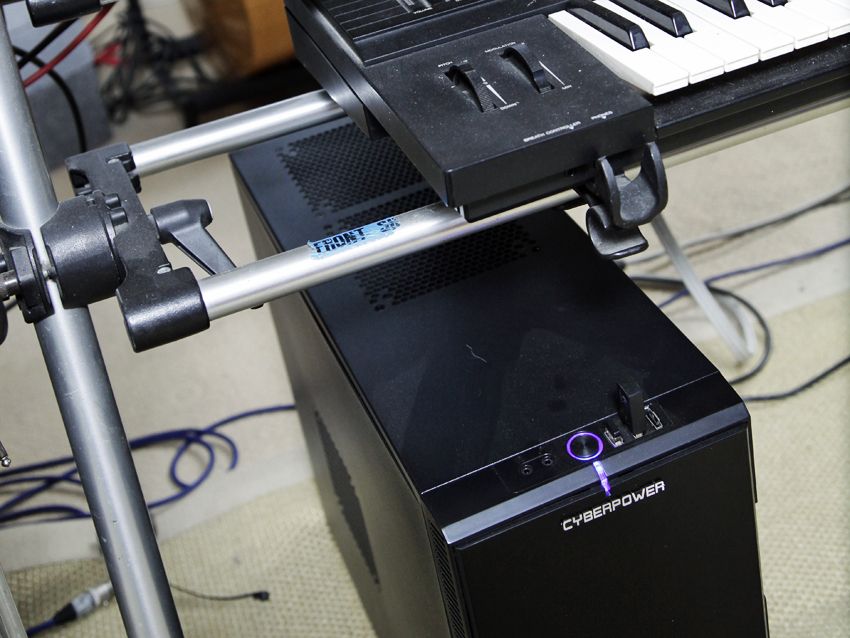10 tips to make your studio computer faster

Want all the hottest music and gear news, reviews, deals, features and more, direct to your inbox? Sign up here.
You are now subscribed
Your newsletter sign-up was successful
Recording and playing back audio and using sampled instruments means your hard drives are constantly accessing big chunks of data. Here are ten points to make sure you're doing it with maximum efficiency.
Always use a dedicated audio drive with your DAW
Never put audio on your system drive. Most DAWs need to access the system drive while working and if the same drive is trying to access audio at the same time you'll soon get bottlenecks and 'disk too slow' messages. All that audio accessing can also wear out the drive faster, which is never good if it's also your system drive.
Have at least one drive dedicated to your sample libraries
If you have lots of samples and often run drums, strings and pianos at the same time, it might be worth splitting them over multiple drives. As is the same with audio, it prevents bottlenecks and means your drives will be safer for longer.
Use faster hard drives
As a rule use a disk with a minimum rotational speed of 7200rpm for both audio and samples.
The drive interface makes a big difference
Internal SATA 3.0 can run at 600MB/s as opposed to USB 2.0, which only gives you 47.6MB/s. If your interface isn't fast enough it will slow down your drive. Internal SATA drives, external FireWire 800 and eSATA work best.
Use sensible and logical file structures for your samples wherever possible
If you collect samples from lots of sources make sure you have a folder and subfolder structure that you stick to. It means you can find things easily when you want them and so can your computer.
Run a defrag program
Disk fragmentation (when files get split into bits because there is not enough contiguous space to store them as complete units) makes your disk run slower as the read head has to bounce back and forth looking for all the bits. Run a defrag program like Windows Disk Defragmenter. It allows you to analyse a disk, defrag it if necessary or set an automated schedule to do it. Work on a Mac? OS X does a great job of keeping itself in check.
Want all the hottest music and gear news, reviews, deals, features and more, direct to your inbox? Sign up here.
Run 64-bit and get more RAM
Even with super-fast disks and bus speeds nothing makes life easier than having as much RAM as you can afford. Everything runs a bit better and you aren't forcing your disks to work overtime. And then...
Sort out your bloated sampler instruments
We know it sounds daft but we all do it. Everybody has favourite 'go to' patches but often we only want one or two elements. Take the time to make your own slimmed- down versions and just think of all that RAM and load time you'll save.
Consolidate your audio edits
If you have loads of edited audio tracks you can end up with thousands of audio regions, particularly when editing multi-tracked drums. This is a bit like fragmenting your disk as the DAW reads the file back and forth moving those edit sections around, not to mention computing all those crossfades. If you're happy with the edits, consolidate the tracks.
Back up, back up, back up
Make sure you regularly back up of all your drives.If you're using internal drives get yourself an external caddy that takes SATA drives. They connect either by USB 2.0 or eSATA (if you have a port fitted). Find incremental backup software that you like and run it regularly (a good professional standard is daily for audio drives and weekly for sample drives). Then, if one of those hard working drives does give up the ghost, just pop the backup in its place. Lovely.
Future Music is the number one magazine for today's producers. Packed with technique and technology we'll help you make great new music. All-access artist interviews, in-depth gear reviews, essential production tutorials and much more. Every marvellous monthly edition features reliable reviews of the latest and greatest hardware and software technology and techniques, unparalleled advice, in-depth interviews, sensational free samples and so much more to improve the experience and outcome of your music-making.
